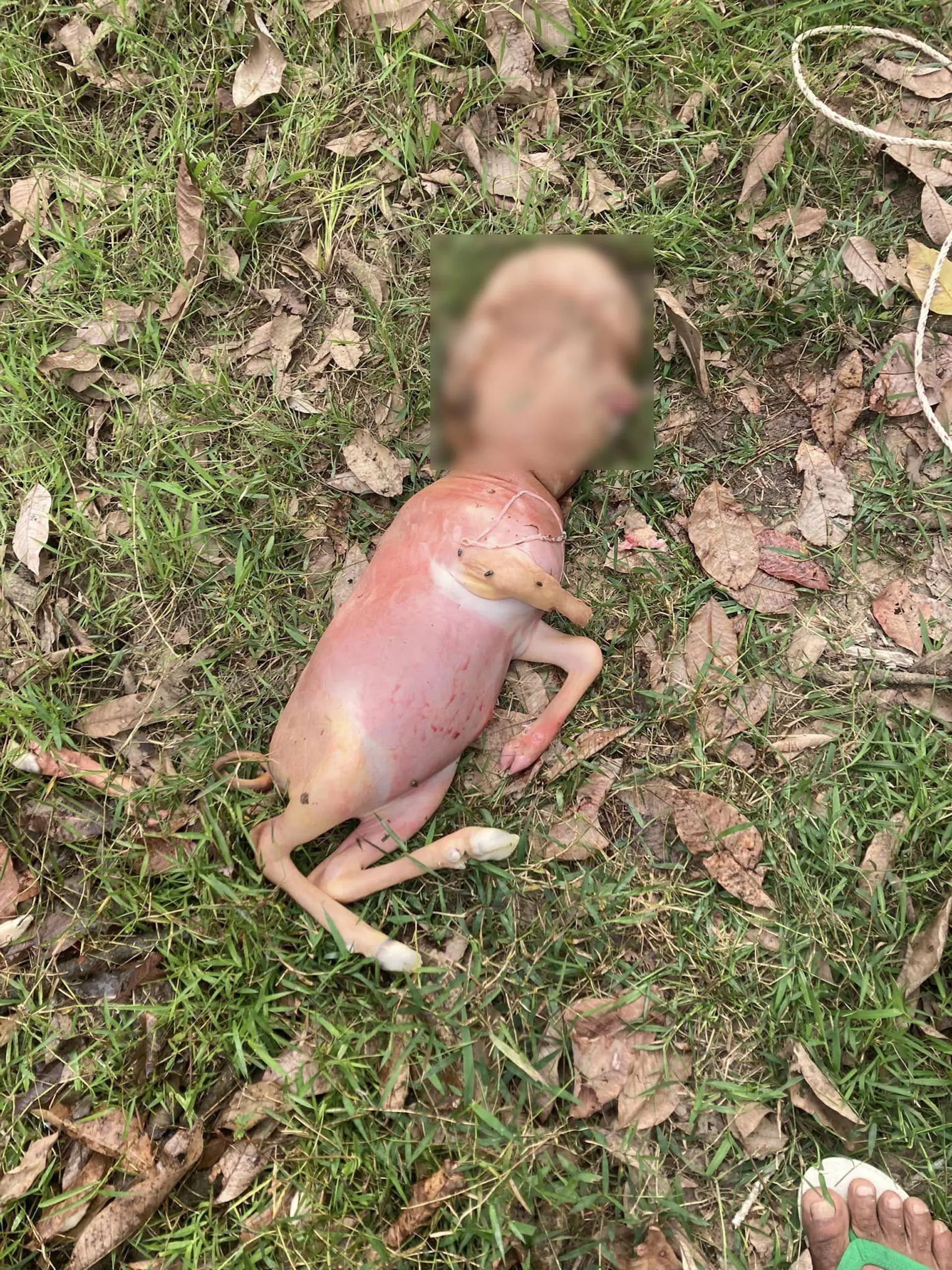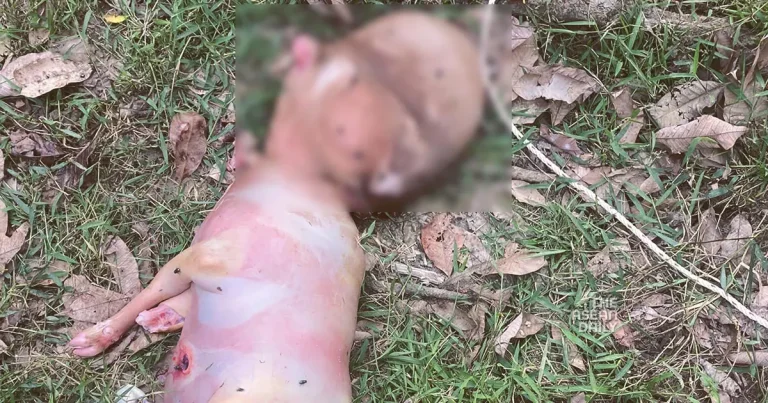29-1-2024 (BANGKOK) In a curious incident unfolding on a farm in Thailand, a calf bearing an uncanny resemblance to a human has recently been born, igniting a flurry of online discussions and speculation. Dubbed the “half-human, half-cow” creature, the calf exhibited shorter front legs and a round head reminiscent of a human’s. Netizens amusingly pondered whether there had been any cross-species interaction between a villager and the cow, while others dismissed it as a case of a malformed calf. Tragically, the calf succumbed shortly after its birth. The incident has attracted international attention and raised questions about human-animal hybrids, although scientists have been swift to refute such assertions, citing substantial genetic disparities between humans and cows that render crossbreeding implausible.
According to local media accounts, on January 22nd, a netizen presumed to be the farm owner shared a photo on social media, claiming to have discovered a peculiar newborn calf. The image depicted a calf with a distinctly unusual head and front legs compared to a typical cow. The round-shaped head lacked discernible facial features, while one front leg appeared notably shorter. The calf’s skin exhibited a pale pink hue. The owner captioned the photo with the query, “Is this a human or a cow? I just delivered it.”

Although the calf’s body largely resembled that of a regular calf, its untimely demise soon after birth prompted intense debate. Some observers remarked that it bore a resemblance to a human or questioned whether it could be categorised as a human child. Some individuals even jokingly speculated about potential interbreeding between a human and the cow. However, many others contended that the calf was likely a malformed fetus resulting from abnormal pregnancy conditions in the cow. Furthermore, despite its round-shaped head, the overall appearance did not closely resemble that of a human. These arguments underscore the significance of education. Local media also highlighted that most animal malformations do not survive for long.
The incident captured the attention of international media outlets, with some suggesting the possibility of human-animal hybridization in rural Thailand. Nonetheless, scientists promptly dispelled these claims, emphasising that the genetic chasm between humans and cows is far too vast to permit crossbreeding and the production of viable offspring, irrespective of any potential genetic anomalies.




